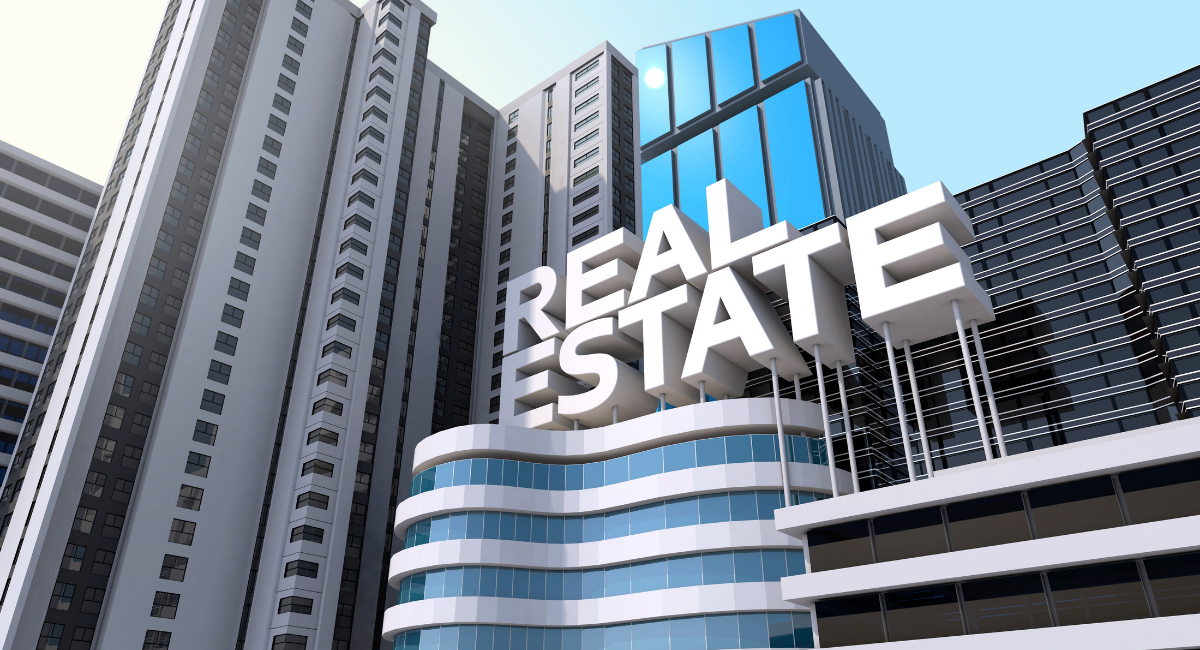When you want to buy a new commercial property or rehab a new one, you probably looking to get a commercial real estate loan. Commercial real estate lending is a vast industry that gives a plethora of options for business owners and investors. Unlike residential lending, which only has a few options, commercial real estate lending has much more to offer. With this diversity and vastness of the options, it is easy to feel overwhelmed, especially if you are a beginner in real estate investing.
There’s a beginning for everyone, and you’ll figure out your way into commercial real estate investing as you navigate your way. To make your life easy, we have compiled this guide to walk you through everything you need to know about commercial real estate lending. The best types of commercial real estate loans to its requirements are how to qualify for commercial real estate loans, we’ll answer questions. We will talk on how to get a loan for Commercial property, the down payment for commercial property, how commercial loans work, and the best type of commercial real estate loans to choose from.
Read on and dive deep into all things you should know about commercial real estate lending, as a beginner.
What is a Commercial Real Estate Loan?
First things first, what is a commercial real estate loan? A commercial real estate loan is a financing product that is designed specifically for building a commercial property, or for purchasing or renovating an existing commercial property. These loans are also called as business mortgage loans, meaning these loans are used strictly for business purposes.
In this context, commercial real estate means any property that is used for business purposes – including a retail store, office buildings, warehouse, manufacturing facility, shopping mall, distribution house, and so on. Multi-family properties are also considered commercial real estate property as they are used by a commercial property investor to generate profits, not for residential purposes.
With Commercial Real Estate Loans, the property that you are applying a loan for becomes the collateral security of the loan. Like any other form of asset-based loans, commercial real estate loans come in a wide variety of types, varying in their terms, loan amounts, rates, length of application approval, closing costs, and other loan-related fees.
Types of Commercial Real Estate Loans
Now that you have a brief understanding of what commercial real estate loans are, let’s discuss the common types of commercial real estate loans available. Whether you want to purchase a new commercial real estate property or upgrade and renovate an existing one, here are the top 5 types of commercial real estate loans:
#1 – Traditional Bank Loans
The most traditional type of commercial real estate loan out there in the market are traditional bank loans. As the name suggests, these loans are provided by banks. Most people think of bank loans while considering commercial real estate loan options. In most cases, banks will be able to lend you the majority of your loan amount to meet your commercial real estate needs and at the most affordable rates in the market. However, banks also have very high qualifying standards, making it hard for every borrower to get their loan application approved.
The upsides of taking real estate loans from banks are getting the best commercial real estate loan rates and the longest term period for your loan. The potential downsides of taking bank loans are that you will need a high credit score and strong business and personal financial history to qualify for a traditional bank loan. Thus, these loans are more suitable for people with amazing credit scores and can back it with a good financial track record. The average traditional bank loan rates range from 3% to 8%.
#2 – SBA Loans
The next most affordable option in the market is SBA loans. They stand only next to banks in offering the most desirable rates and terms of commercial real estate. There are two most common types of SBA Loans: SBA 7 (a) loans and SBA 504 loan programs. The SBA 7(a) program is an all-purpose general business loan program that can be used for various purposes, including repairs and renovations to commercial property. On the other hand, SBA 504 loans are designed to help small and medium-sized businesses purchase or upgrade and make repairs to capital-heavy assets such as heavy equipment or commercial real estate. The average rates of SBI loans range from 4% to 7%.
#3 – Hard Money Loans
Hard money loans are commercial real estate loans provided by non-bank private lenders. These are short term loans that are provided by private money lenders. The upsides of choosing hard money loans are many, including faster closing processes and easy qualifying requirements. However, these loans are provided for smaller loan amounts and generally carry higher interest rates.
Since qualifying for hard money business loans is much easier than qualifying for a bank loan or an SBA loan, many first-generation small businesses try to get their first few commercial real estate loans from private money lenders. It also helps them build enough credibility and proof of loan repayment history, thus increasing their credit scores. However, hard money loans carry high rates of interest, making every borrower want to look at it as a last resort. When banks and SBA loans turn you down, hard money loans could be your next best bet.
#4 – Commercial Bridge Loans
The next common type of commercial real estate loan is a commercial Bridge loan. A commercial Bridge loan is a short term loan that lets borrowers quickly purchase properties or capitalize on an opportunity. These loans are generally used to bridge the gap between your current financing position and your future financing position. T
he best use case of a commercial Bridge loan is making upgrades to an existing commercial real estate property to attract better high-paying tenants, thus increasing the future cash influx into your real estate business. Commercial Bridge loans are provided both by banks and private money lenders. The qualifying standards for commercial Bridge loans are similar to traditional bank loans in the case of banks, and similar to hard money loans in case of private lenders.
#5 – Short Term Loans
Short term loans, as the name suggests, are short term business loans that are funded by online lenders, and can be used for a variety of purposes. Short term loans range from $ 2,500 to $ 250,000, with terms ranging from 4 to 18 months. The pertaining interest rates on these short term loans are much higher than other commercial real estate loan options with the starting rate at 10%. Most short term loans can be funded in as little as one day! Thus, these loans are best suitable when you have an immediate financing need for a small amount of money.
How do Commercial Real Estate Loans Work?
Now that you have a brief understanding of what commercial real estate loans are, and the different types of commercial real estate loans out there, let us discuss how commercial real estate loans work. Unlike residential mortgages, commercial real estate loans are very diverse and have different qualifying conditions for each type of loan. Here are a few terms that you should know about to understand how commercial real estate loans work.
#1 – Amounts
There is no fixed limit on the amount of money that you can borrow under the purview of commercial real estate loans. You can borrow loans for as little as $2500 to 7 figure amounts depending on your need and property nature. That being said, the maximum amount that you can borrow will depend on two major factors. One, the purchase price of your commercial real estate property. Two, the type of commercial real estate lender you are working with. Some commercial lenders have bars on the maximum amounts of money they can lend. If you’re looking at really large amounts, banks or private money lenders are your best bet.
#2 – Interest Rates
As with any other business loan, the actual commercial real estate interest rates for your loans depend heavily on the type of business, nature of the property, it’s profitability, and your personal and business creditworthiness. As a general rule, the interest rates for commercial real estate loans are generally much higher than residential loans.
Ultimately, the type of lender you choose to work with is the biggest determining factor of your loan rates. If you choose banks or SBA loans and get your loan application approved – you can get loans at least interest rates ranging from 3% to 8%. However, if you are working with private money lenders, you should expect higher interest rates, ranging from 7% to 20%, with larger down payments.
#3 – Loan Period
Loan Period or the Repayment periods of commercial real estate loans are generally much shorter than residential loans. It depends largely on the type of commercial real estate lender you are working with. SBA loans and bank loans generally provide for fully amortized commercial real estate loans with terms ranging anywhere from 20 to 25 years. With such loans, you’ll make monthly installment payments towards the Repayment, beginning from payment of interest rates first, and then towards the clearance of principal amount of the loan.
On the other hand, hard money lenders provide loans that have much shorter terms ranging anywhere from 1 to 5 years. There are exceptions to this rule where some hard money lenders can extend the repayment terms, depending on your needs and creditworthiness. Thus, hard money loan options are best suited when you want to invest in projects like fix-and-flip properties. Construction loans are another great use case for hard money loans.
#4 – Loan-to-value-ratio
LTV or Loan-to-value-ratio is the size of your commercial real estate loan with your property’s purchase price. Traditional banks go up to 90% LTV, meaning they’ll cover 90% of the property price by providing you a loan, and you’ll only have to bring in the remaining 10% of the loan.
Whereas, short term commercial real estate lenders like the private money lenders generally provide an LTV of 60% to 70%, meaning you’ll have to bring in the remaining 40% or 30% of the property price as a down payment. As a general rule of thumb, the higher the LTV, the higher the interest rates will be, whether you work with banks or private money lenders.
#5 – Balloon Payments
Many short term commercial real estate lenders offer “balloon loans,” which are short-term loans stretched over not more than 5 to 7 years. The low interest-only payments are made throughout the loan, and the full pending balance is made at the end of the loan term in one big “Balloon” payment. These loans are best suited for small and medium-sized businesses who cannot commit to regular monthly payouts and just want to focus on business development.
At the end of the term, they’ll repay the loan. It is generally suggested to take a balloon loan only when you are sure that you’ll have the cash on your hand at the time of making the final payment. However, as an escape strategy, in a case where borrowers fail to arrange for cash to repay the balloon payment, the loan can be refinanced by another loan, say commercial mortgage refinance loan to put off the impending large balloon payment.
#6 – Fees
Besides interest rates, most commercial real estate loans also carry some loan fees associated with carrying out your commercial loan application processes like origination fees, legal fees, and other charges. It is very important to check with your commercial real estate lender way in advance about all the types of associated fees tied with your loan.
Sometimes, some lenders charge very high closing fees, and this is an expense most investors overlook. Lenders might also charge prepayment penalty fees if you choose to prepay your loan amount before the end of the loan term. Double-checking about all the fees associated with your loan is essential.
How To Qualify For Commercial Real Estate Loans
The next thing to understand about commercial real estate loans is the various qualifying standards of the loan. Like any other loan, commercial real estate loans have diverse qualifying standards, varying from one lender to another. Here are a few basic qualifying requirements that you’ll need to meet as a borrower:
#1 – Your Credit Score
Credit Score is the biggest deciding factor determining your eligibility for a loan, especially when you’re planning to borrow from traditional banks or SBA lenders. Like other types of business loans, real estate lenders are interested in knowing about your repayment abilities and your financial history. No one fixed rate makes up for the best credit score in the market.
However, as a general rule of thumb, banks and SBA lenders generally require borrowers to have high credit scores, which are not less than 700. However, if you have a poor credit score, you can always get your loans approved by private moneylenders. As with private lenders, they are happy to work with borrowers who suffer from poor credit scores but can provide confidentiality about the loan repayment with a good plan on how the investor intends to repay the loan within the loan term.
#2 – Property Value
Commercial real estate loans are asset-based loans, the property itself acts as the collateral for the loan. Thus, commercial real estate lenders aren’t just looking at your credit scores and financial histories but also the property value. As a general rule of thumb, the higher the property value, the better your chances are getting a good loan for your property.
Since they are asset-based loans, in a case where you fail to repay your loan on time, your commercial lenders will have a lien on the property. As they have this interest vested in your property, lenders will be generally interested in your plans to renovate or make any changes to the property. In most cases, borrowers submit a detailed project plan on what they intend to do with their property.
#3 – Time in Business
Like business loans, commercial real estate loan lenders depend on the time factor to determine your eligibility. The longer you have stayed in business, the higher your chances of getting the loan approved. Similarly, if you are new to the business and have been around for only a few months, the riskier it is for your lender to lend you, thus reducing your chances of getting a loan.
Generally, any business that has been around for at least 2 to 3 years has the best chances of getting a loan request approved. However, when you don’t have this leverage on your side, you can work with private lenders who are much flexible than banks or SBA lenders. If you can convince your private money lenders of your loan repayment abilities, you still have a chance to get the loan you want.
#4 – Debt Service Coverage Ratio
Debt Service Coverage Ratio determines your financial capability to pay off your existing loan obligations completely. This ratio is used by lenders to understand how financially strong you are to be able to pay for monthly loan liabilities. In simple terms, DSCR is a measure of the company’s capital or cash available to pay off its current debt obligations. DSCR is calculated by dividing your business’s annual net income by your business’s annual debt expenses.
For instance, let’s say your business’s annual income is $6,00,000, and your annual debt expenses are $3,00,000. Here, your DSCR is 2, which is quite healthy. Whenever the DSCR is greater than 1, it means that your business has enough funds to pay off its debts. When the DSCR is exactly 1, it means that you have just enough cash to pay off your debt but do not have any cash over and above that. Lastly, if your DSCR is less than 1, it means that you do not have enough cash reserves to meet your debt expenses, in which case commercial real estate lenders back off from approving loan applications.
How to Apply for Commercial Real Estate Loans
When you are fairly convinced that you can qualify for a commercial real estate loan from a particular lender, you can fill out an application for your chosen CRE loan program. Along with this application, you will be asked for various documents like your income tax returns, bank statements, business annual income statements, business tax returns, pay stubs in case of self-employed borrowers, and other necessary documents. In any case, you must be prepared to submit any documentation your lender asks you for to speed up your loan approval process.
Final Words
It goes unsaid the hunt for your commercial real estate loans is going to be harder than residential loans. However, there’s a beginning scratch for everyone, and you’ll understand more about commercial real estate lending as you progress your path into commercial real estate investing.
A good place to start your search from would be banks and SBA lenders, if best rates and longer terms are your biggest needs, provided you have good credit scores. However, when you cannot boast of a great credit score – you should venture out other options like hard money lenders and small-term loans. Whatever the case may be, it is important to so your ground research before you talk to any lender or negotiate on any terms. This way, you’ll always be more equipped with knowledge leading you to make better-informed decisions.
You can also take help from Private Capital Investors as they are expert commercial real estate hard money lenders.





